Write your awesome label here.
The Voice in Your Head Shapes Your Life
Your self talk is the conversation you have with yourself every day. It can sound like encouragement or like criticism. Sometimes it builds you up, other times it tears you down. It becomes a self-fulling prophecy, where your thoughts and emotions end up shaping your reality. That inner voice affects how you see yourself, how you respond to challenges, and whether you believe you can create a real life change (or not).
Even high achievers deal with self doubt, imposter syndrome, and that inner critic. Much of this stems from early influences, like parents, teachers, friends, or past experiences. Over time, we repeat those thoughts and ideas until they turn into part of our own identity. But the problem is, if those thoughts and ideas are negative, they become limiting beliefs that hold us back.
Negative Self Talk vs Positive Self Talk
Negative self talk sounds like “I always mess up,” “I’m not worthy,” or “I can’t do this.”
Positive self talk sounds like “I am capable,” “I am worthy,” or “I can do this.”
The difference is more than just words. Negative self talk creates negative emotions like fear, doubt, and insecurity. While positive self talk creates positive emotions like confidence, resilience, and optimism. So your repeated thoughts become habits, and those habits shape who you believe you are.
The Neuroscience Behind Changing Your Self Talk
Neuroscience shows that your brain is capable of change through neuroplasticity. This means your neural pathways adapt and rewire based on your repeated thoughts, actions, and experiences.
If you constantly engage in negative self talk, you strengthen the neural pathways connected to fear, self doubt, and limitation. This makes those thoughts your default.
But if you practice positive self talk, you strengthen neural pathways linked to confidence, motivation, and self belief. This not only rewires your brain but also triggers dopamine, which reinforces your brain’s reward circuits for positivity.
Here’s the key: in moments of stress or uncertainty, your brain will always default to the thoughts you have rehearsed the most. So if you want to have confidence when you’re under pressure, you must practice speaking to yourself with encouragement, kindness, and belief. The conviction that you have in yourself comes from the way you speak to yourself.
Four Steps to Rewire Your Self Talk
Changing your self talk is not about lying to yourself. It’s about rehearsing the identity of who you are becoming. Here are four steps to shift from negative to positive self talk and build self-confidence from within:
1. Practice Self Awareness
You cannot change your self talk without first noticing it. Pay attention to the words you use when you speak to yourself. Try to catch it as it’s happening.
Are they supportive or destructive? Building self awareness allows you to notice and interrupt the pattern of negative self talk.
Are they supportive or destructive? Building self awareness allows you to notice and interrupt the pattern of negative self talk.
2. Replace the Thought
Once you notice negative self talk, challenge it. Ask yourself, “Is this really true?” Then replace it with a more empowering statement. Instead of “I can’t do this,” say, “I am learning, and I can figure this out.”
Each time you do this, you’re retraining your brain to see what’s actually possible instead of just believing your default thoughts.
Each time you do this, you’re retraining your brain to see what’s actually possible instead of just believing your default thoughts.
3. Use Emotions to Anchor New Beliefs
Words are powerful, but emotions make them even stronger. When you say positive affirmations, speak with conviction. Feel the possibility, hope, and strength behind the words.
This emotional charge helps your form stronger, more empowering neural pathways.
This emotional charge helps your form stronger, more empowering neural pathways.
4. Repeat Until It Becomes Your Default
Repetition is the key to neuroplasticity. The more you rehearse positive self talk, the more natural it becomes. Over time, this changes your default thoughts in moments of doubt or challenge.
And when your thoughts are ones of encouragement, compassion, and kindness, you’ll respond differently as well.
And when your thoughts are ones of encouragement, compassion, and kindness, you’ll respond differently as well.
Why Self Talk Matters for Confidence and Decision Making
Your self talk shapes your identity. If you tell yourself you are not capable, you will avoid challenges. If you believe you can handle what comes, you will lean in and try. This impacts your decision making because most choices in life require some level of confidence. Just think about all the instances in your life where you’ve avoided something purely because you didn’t think you could do it. That decision to act or shy away stems from your self talk that trickles down to your confidence.
So every time you replace negative self talk with positive self talk, you’re training your brain to respond with courage instead of letting fear take hold of your decisions. This mindset shift allows you to break limiting beliefs, improve decision making, and build the kind of self confidence that leads to real life change.
Your Identity in Motion
You can think of self talk as your identity in motion. The way you speak to yourself today is shaping the person you will become tomorrow. You are not the same person you were five years ago, and you will not be the same person five years from now. The question is, will your future self be stronger, more confident, and more capable because of the way you speak to yourself now?
If your self talk isn’t working for you, it’s in your control to change your self talk, which will impact the decisions you make and the actions you take
A Personal Reflection
I have learned that self talk is one of the most powerful tools we have for transformation. And that self talk is an ongoing practice, not a one-time change. I still catch my inner critic trying to sneak in, but I now have the awareness and tools to shift my thoughts when I see that I'm acting from a place of fear and doubt. And that has made all the difference in how I see myself and what I believe I can achieve.
So I want to leave you with this question: what is one negative thing you have been telling yourself that you are ready to replace with a positive “truth”? And the reason I use the word “truth” is because your self talk and beliefs are the things that shape your personal truths. At the end of the day you will always act in alignment with who you believe you are and the story you keep telling yourself. So your answer could be the first step in rewiring your brain for confidence and a new pathway towards success.
Sincerely,
Dexter Lam

Do you want to level up and change your life Trajectory?
We're launching our course on Self-Awareness
Thank you!

